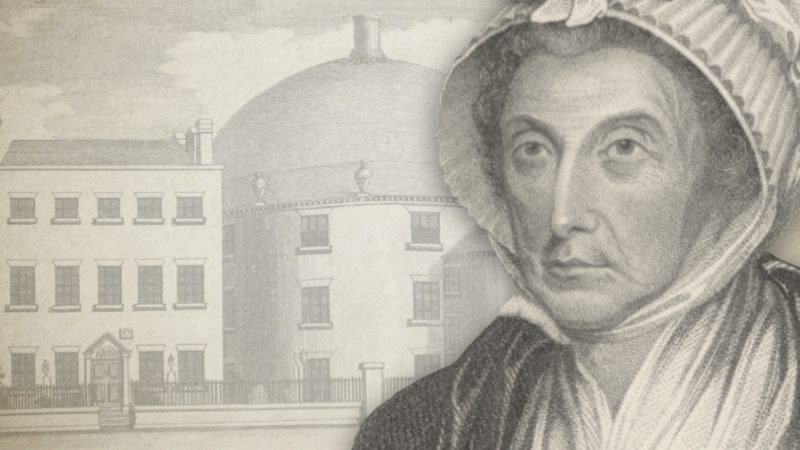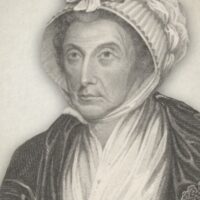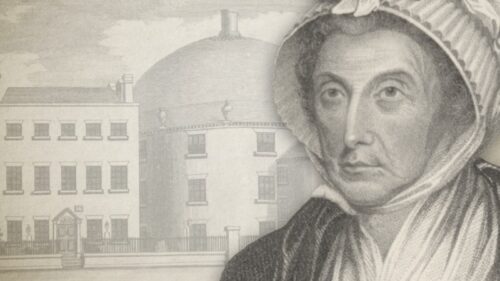
The Life And Testimony Of Selina Hastings
The Sower 1886:
The names of Whitefield, the Wesleys, Romaine, Toplady, and others, carry our minds back to an eventful period—to a time when, amidst the coldness and apathy which seemed to have settled over the land, God raised up men whose preaching, like a flame of fire, warmed many hearts, and, in spite of opposition and enmity, left a light which no human power could extinguish. From London City to the mountains of Wales, or the moors of Yorkshire, and to the masses of the miners gathered together in the Cornish villages, this wave spread, touching the very hearts of the people, for it was the power of the living God sending forth these men to enforce the claims of His righteous law, the awful consequences of sin, and the all-sufficiency of the Saviour. Their labours were not in vain. To all that planting and watering God gave an abundant harvest.
Associated with these men, one woman’s name is worthy of remembrance, for in her sphere she wrought abundantly, and there is abundant proof that the Lord blessed her labours.
Selina Shirley, the second daughter of Earl Ferrara, was born on August 24th, 1707. When about nine years old, she was taken to the funeral of a child of her own age, and dated her first serious impressions from that event.
In June, 1728, she married the Earl of Huntingdon, a man of high moral character, who during his life manifested great affection for her, and at his death left her the entire management of her children and their fortunes. After her marriage she was the “lady bountiful” among her dependents, endeavouring, she afterwards declared, to establish her own righteousness by fasting and alms-deeds. Rigidly just in all her dealings, a diligent inquirer after truth, frequent in sacred meditation, and a regular attendant at public worship, she was admired by others, and thought herself she had gained great heights in religion. She could afterwards see that, at that time, she was a stranger to that change of heart with which begin new life and new desires, which no amount of natural religion can ever bring.
The Church clergy, as a body, were then very cold and negligent, caring neither for their own souls nor for the souls of their parishioners; and when Whitefield and the Wesleys began their work, not only were the common people aroused by these “Methodists,” as they were called, but with many ladies of rank and fashion, the zeal and fervour of their preaching became the topic of conversation.
One day, as Lady Huntingdon was conversing with Lady Margaret Hastings, the latter spoke of the happiness she had felt since she had known and believed in the Lord Jesus Christ for life and salvation. The conviction came to the Countess that to this happiness she was a stranger. That word was the means of showing her the depravity of her own heart. How many can recall in their own experience the path she was now treading—the efforts to conquer the evil of her nature! She endeavoured to dispel the thoughts which brought so much distress. The more she strove, the greater the failure, until that place was reached where the soul is brought in utterly helpless, utterly sinful, in the sight of a pure and holy God. A dangerous illness brought the fear of death before her. She stood like Joshua, the high priest, before the Lord in filthy garments, all her supposed righteousness gone. Then went forth the gracious command, “Take away the filthy garments, and clothe her with change of raiment.”
The change was so great that it could not pass unnoticed, and some even attributed it to insanity in her family. Benson, Bishop of Gloucester, was sent for to reason with her on the unnecessary strictness of her conduct. Finding he could not influence her he left her, bitterly lamenting that he had ever “laid hands” on George Whitefield, to whom he attributed the change wrought in her. She called him back to say, “My lord, mark my words. When you come upon your dying bed, that will be one of the few ordinations you will reflect upon with complacency.” It is worthy of remark that Bishop Benson, just before his death, sent ten guineas to Whitefield as a token of his approbation, and begged to be remembered in his prayers.
The first Methodist Society was formed in 1738, in a plain chapel in Fetter Lane, London. Here Whitefield and the Wesleys often preached, and here Lord and Lady Huntingdon attended. Lady Huntingdon was the means of introducing preachers who were not members of the Church of England, and lay preaching among the Methodists rapidly spread. The chapel in Fetter Lane was afterwards left to the Moravians, from whom Lady Huntingdon and the Methodists withdrew.
The influence of this godly woman no doubt brought many of the nobility into religious concern; but she had much to endure for joining a people who were deemed so rigid and peculiar.
When Whitefield commenced field preaching, persecution greatly increased, magistrates, in many cases, refusing to interfere to afford the Methodists protection. Lady Huntingdon wrote to one of the principal Secretaries of State, who laid the letter before George II. The result was that the king ordered all magistrates to afford them protection.
In 1746, the Earl of Huntingdon died, to the great grief of the Countess, and, during the next few years, she was greatly tried by severe attacks of illness. She subsequently made several tours into Wales, Yorkshire, Lancashire, and other counties with Whitefield, Romaine, and others, and attended their services for preaching.
About 1767, Lady Huntingdon established a college at Trevecca, in Wales. She afterwards chartered a ship to send some of her students to America. After her death, the College was removed to Cheshunt, Hertfordshire.
Lady Huntingdon built many chapels, which are still called by her name.
In 1756 she visited Brighton. While walking in the town, a lady accosted her with the words, “Oh, madam, you are come!” Lady Huntingdon said, “What do you know of me?” “Madam,” the lady replied, “three years ago, I saw you in a dream, dressed as you are now, and felt that you would come to Brighton, and be the means of doing much good.” This lady died about a year afterwards, leaving a testimony that Lady Huntingdon had been the instrument of her conversion.
On another occasion, Lady Huntingdon, while at Brighton, visited a poor soldier’s wife whom she heard was dying under painful circumstances, for her whole time and energy were devoted to doing good. She spoke to her so earnestly and affectionately of her awful state, and the certainty of eternal punishment if she died unrenewed and unwashed in the Saviour’s blood, that the poor woman began earnestly to beg for mercy, and entreated her visitor to come again. Some women who had overheard the conversation assembled at the time of her second visit, until there was quite a congregation of women. A blacksmith one day came in, and would not retire. Lady Huntingdon decided to talk to them as if the man were not present; but the Lord met with him on that occasion, and he lived twenty-nine years after, a monument of saving mercy.
In I 761, a chapel was opened in Brighton, and towards the cost Lady Huntingdon sold £700 worth of jewels.
George III, after an interview with Lady Huntingdon, always spoke of her in the highest terms. He told her he had heard so many strange stories of her that he was anxious to see if she was very unlike other women, and assured her that her zeal and abilities could not be consecrated to a more noble purpose. “I wish,” the king said to one of the bishops who had censured her, “there were a Lady Huntingdon in every diocese in the kingdom.” He afterwards wrote to the Archbishop of Canterbury, complaining of the balls and festivities he frequently gave and attended.
In 1786, the Papists in Belgium laid a plot to assassinate the Countess. She was invited to visit Brussels, but, in the overruling providence of God, she was delayed several days in her journey to London, and the plot was discovered.
Her liberality to all in need was very great. She once said the Lord had not given her anything. The remark being questioned, she said, “He has only lent it me, and I am determined to repay Him.”
In 1790, Lady Huntingdon broke a blood-vessel. At this time she said to a friend, “I confess I have no hope but that which inspired tie dying malefactor at the side of my Lord. I must be saved in the same way—as freely, as fully—or not at all. And as I have always lived, the poor, unworthy pensioner of the infinite bounty of my Lord God and Saviour Jesus Christ, so I declare that all my present peace and my future hope of glory, in whole or in part, depends fully and finally upon His alone merits, committing my soul into His arms unreservedly, as a subject to His sole mercy to all eternity.”
A day or two before her last illness, she spoke of a remarkable manifestation of the Lord’s presence, which she thought might be an indication of her departure. Often during her last days on earth she would exclaim, “I am encircled in the arms of love and mercy. I long to be at home.” On the day on which she died, she said, “I shall go to my Father this night. Can He forget to be gracious? Is there an end of His loving-kindness? My work is done. I have nothing to do but to go to my Father”; and, on June 17th, 1791, her redeemed spirit joined that multitude who have “washed their robes, and made them white in the blood of the Lamb.”
“Not many wise men after the flesh, not many mighty, not many noble, are called.” “I bless God,” the Countess of Huntingdon was wont to say, “it does not say, not any, but, not many.”
Selina Hastings, Countess Of Huntingdon (1707-1791) was a sovereign grace believer who financed chapels, organized churches and sponsored gospel preachers. She belonged to the Methodist movement, her Calvinist group known as the Countess of Huntingdon’s Connexion.




